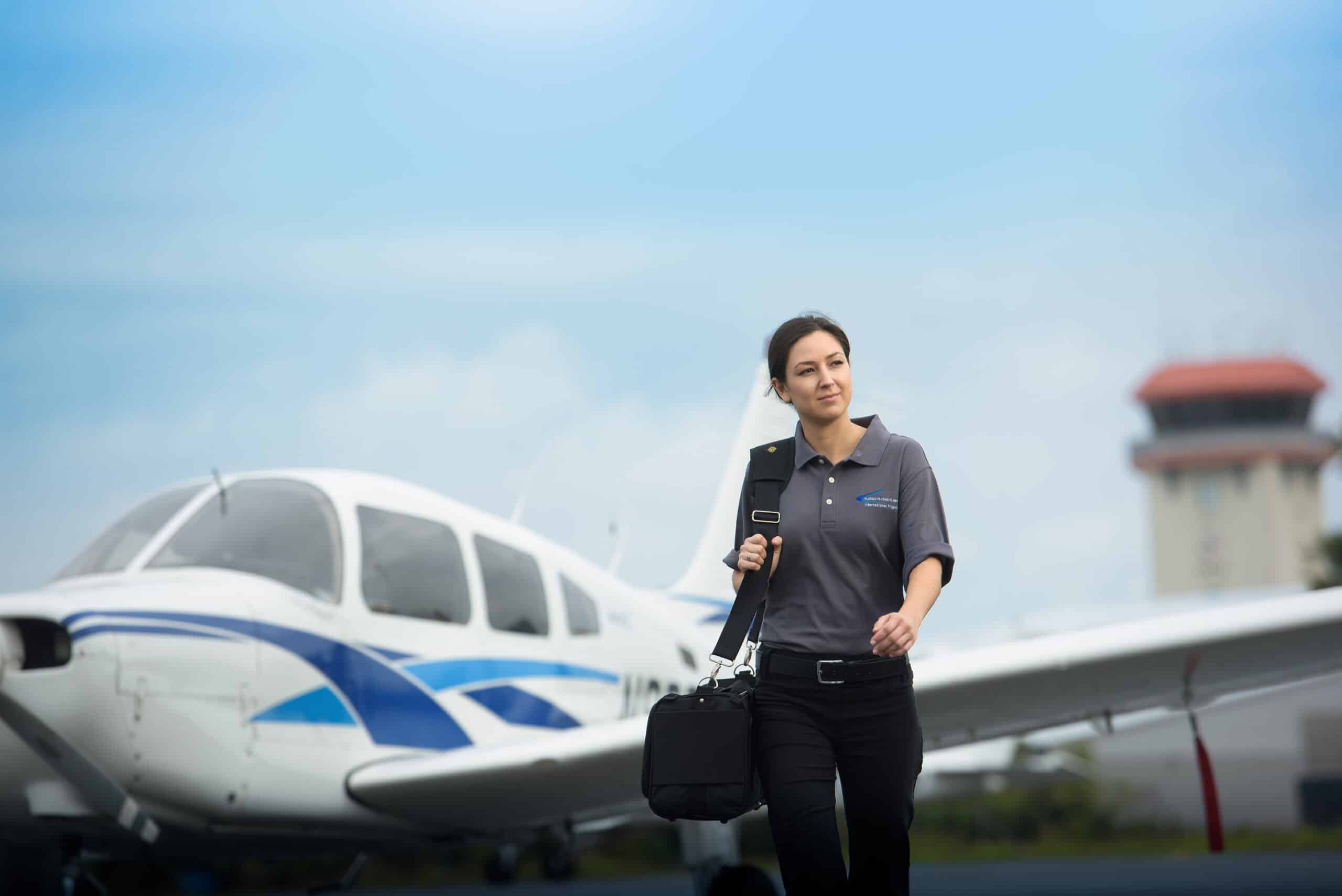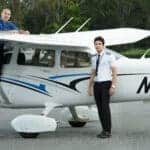How to Start Pilot Career India – Your #1 Ultimate Guide

You’re thinking about becoming a pilot in India. Ambitious, right?
But maybe you’re overwhelmed. It’s a big step, and you don’t know where to start.
Here’s the thing: How to Start Pilot Career India isn’t about just signing up for a flight school. It’s a step-by-step journey, starting with understanding the basics and building the skills that’ll make you successful in aviation.
In this guide, we’ll break it down for you. From eligibility and training to career options and growth, we’ll walk through what you need to get started—and how to make your dream of flying a reality.
Ready? Let’s get started and map out the steps to your dream career.
Path to How to Start Pilot Career India
Embarking on a pilot career in India requires structured planning, meeting educational qualifications, and gaining the right certifications. Below is a comprehensive guide tailored to How to Start Pilot Career India for aspiring aviators.
Step 1: Understand Educational Qualifications
- Candidates must have completed 10+2 with Physics and Mathematics as compulsory subjects from a recognized board.
- Non-science students can meet this requirement by taking equivalent courses in Physics and Mathematics from the National Institute of Open Schooling (NIOS) or similar organizations.
Step 2: Meet Basic Eligibility Requirements
- Age Criteria: Minimum 17 years to enroll in pilot training programs.
- Medical Fitness: Secure a DGCA-approved Class 2 Medical Certificate from certified medical examiners. This ensures you meet physical and mental health requirements for flying.
- Proficiency in English: A strong grasp of English, both written and spoken, is mandatory since it is the language of aviation communication.
Step 3: Choose the Right Flight School
Selecting a DGCA-approved flight school is critical for acquiring the training required to obtain a Commercial Pilot License (CPL). Popular schools in India include:
- Florida Flyers Flight Academy India
- CAE Gondia (National Flying Training Institute)
- Indira Gandhi Institute of Aeronautics
Ensure the school offers a structured CPL program that includes both theoretical knowledge (aviation regulations, meteorology, navigation) and practical flight hours.
Step 4: Secure Necessary Certifications
- Enroll in a Commercial Pilot License (CPL) program that requires at least 200 hours of flying experience, including solo, cross-country, and instrument flying.
- Instrument Rating (IR) and Multi-Engine Rating (MER) certifications enhance employability and qualify you for advanced roles.
Step 5: Pass DGCA Examinations
The DGCA conducts exams for pilot candidates in areas like air navigation, aviation meteorology, technical general, and radio telephony. Passing these exams is essential for obtaining your CPL.
Step 6: Post-CPL Experience
Once you secure your CPL, you may start as a co-pilot with airlines or join flight schools as an instructor to build experience and flight hours. Transition to a captain’s role requires additional flight hours and clearing airline-specific exams.
Pilot Career Opportunities in India
The aviation industry in India is witnessing exponential growth, fueled by increasing passenger demand and government initiatives like UDAN. Understanding the diverse career paths in aviation is essential for anyone researching How to Start Pilot Career India.
Commercial Pilots
Commercial pilots serve as the backbone of the airline industry, flying passenger aircraft for major airlines such as IndiGo, Air India, and SpiceJet. This role involves:
- Managing long-haul and short-haul flights.
- Ensuring passenger safety and comfort.
- Coordinating with air traffic control and the airline’s operations team.
Cargo Pilots
Cargo pilots transport goods for logistics companies like Blue Dart Aviation. This career path suits individuals interested in non-passenger aviation roles. The rise of e-commerce has significantly boosted demand for cargo pilots.
Flight Instructors
Flight instructors play a crucial role in training aspiring pilots. This path is ideal for experienced pilots who wish to combine their passion for flying with teaching. Working at DGCA-approved flight schools, instructors guide students through theoretical and practical aspects of aviation.
Emerging Careers in Aviation
Drone Pilots:
- Drone operations are gaining traction in areas such as agriculture, aerial surveying, disaster response, and logistics.
- A DGCA-certified Remote Pilot Certificate is required to operate drones professionally.
Regional Aviation Pilots:
- With the government’s UDAN scheme, regional aviation is expanding rapidly, connecting smaller cities with metros. Pilots for smaller aircraft like ATRs and Bombardier jets are in high demand.
Future Scope and Opportunities
The growing demand for pilots is driven by:
- India’s air traffic growth rate, among the fastest in the world.
- Increased investments in airport infrastructure and regional connectivity.
- Rising interest in private and business aviation.
To ensure long-term career growth, aspiring pilots should stay updated with DGCA regulations, pursue advanced certifications, and maintain excellent physical and technical skills. How to Start Pilot Career India remains a cornerstone for those seeking to thrive in the aviation industry.
How to Start Pilot Career India: Career Growth From Student to Captain
Understanding How to Start Pilot Career India is just the beginning. Career growth in the aviation industry follows a structured path, requiring certifications, flight hours, and dedication.
Here’s a detailed breakdown of the journey from student pilot to captain and beyond:
Step 1: Initial Training and Licensing
Begin with a Student Pilot License (SPL), followed by a Private Pilot License (PPL), and eventually earn a Commercial Pilot License (CPL).
A CPL requires 200 hours of flying experience, including cross-country and instrument flying, along with passing the required DGCA exams.
Step 2: Build Experience as a Co-Pilot
- Most pilots start their careers as co-pilots with commercial airlines.
- Co-pilots gain operational experience by assisting captains during flights and handling pre-flight and post-flight procedures.
Step 3: Transition to Captain
The journey from co-pilot to captain involves meeting the following criteria:
- Logging 1,500 to 3,000 flying hours (specific requirements vary by airline).
- Clearing airline-specific command upgrade programs, which test leadership, decision-making, and advanced flying skills.
- Captains take full command of the aircraft, overseeing the crew, passengers, and flight safety.
Step 4: Leadership and Specialized Roles
Experienced captains may move into roles such as:
- Fleet Manager: Overseeing operations for specific aircraft types.
- Training Captain: Responsible for mentoring new pilots and conducting simulator training sessions.
- Director of Operations: Managing airline operations at an executive level.
Earning Potential and Long-Term Growth
Earning Potential:
- Co-pilots earn between ₹6–12 lakhs per annum, depending on the airline and route.
- Captains can earn ₹30–70 lakhs per annum, with additional perks such as housing, travel allowances, and medical benefits.
Long-Term Growth:
- With India’s aviation market expanding at an unprecedented rate, opportunities for experienced pilots are abundant.
- Senior roles in airline management or transitioning to private aviation are lucrative options for seasoned professionals.
Challenges in How to Start Pilot Career India
While the aviation industry offers exciting career opportunities, aspiring pilots face significant challenges along the way. Understanding these hurdles and how to overcome them is essential for anyone researching How to Start Pilot Career India.
Financial Challenges
Cost of Training:
- Pilot training is one of the most expensive career paths, with CPL programs costing between ₹35–50 lakhs.
- Additional certifications, like Multi-Engine Rating (MER) and Instrument Rating (IR), add to the cost.
Solutions:
- Explore scholarships such as Indira Gandhi Institute of Aeronautics Merit Scholarship or financial aid programs from DGCA-approved schools.
- Consider bank loans specifically designed for pilot training, offered by institutions like SBI and HDFC.
Navigating Irregular Schedules
Pilots often face erratic schedules, night shifts, and long hours, impacting work-life balance.
Solutions:
- Focus on maintaining a healthy lifestyle with regular exercise, proper nutrition, and adequate rest.
- Develop strong time-management skills to balance personal and professional commitments.
Overcoming Competitive Barriers
The demand for pilot jobs often exceeds the supply of opportunities, particularly in top-tier airlines.
Solutions:
- Build a strong profile by logging additional flight hours and earning advanced certifications.
- Networking within the aviation industry can lead to mentorship opportunities and better job prospects.
Adapting to Industry Dynamics
India’s aviation sector is sensitive to economic fluctuations, which can impact hiring trends and salaries.
Solutions:
- Stay updated with DGCA policies and emerging trends in aviation.
- Diversify skill sets by exploring related fields like drone piloting or air traffic management.
Key Takeaways
While challenges exist, persistence, strategic planning, and leveraging available resources can help overcome barriers in How to Start Pilot Career India. Staying informed about industry trends and continuously upgrading skills will pave the way for a successful and rewarding aviation career.
Skills Needed for How to Start Pilot Career India
When considering How to Start Pilot Career India, having the right set of skills is as important as earning the necessary certifications. These skills ensure not only a smooth start to your aviation career but also sustained success as a professional pilot.
Technical Expertise: The Foundation of Flying
Pilots must possess a solid understanding of aerodynamics, navigation systems, and aircraft mechanics. These technical skills are non-negotiable in mastering How to Start Pilot Career India.
During your flight training, ground school provides the theoretical knowledge essential for understanding how aircraft operate. This is complemented by hands-on practice in simulators and real flight hours, helping you apply your knowledge in real-world scenarios.
Quick Decision-Making: A Critical Skill
In aviation, decision-making is often a matter of seconds. Whether it’s navigating turbulent weather or handling mid-air technical issues, pilots are constantly making critical choices.
As part of your journey in How to Start Pilot Career India, simulator training and practical sessions will prepare you to evaluate situations quickly and make informed decisions under pressure, ensuring passenger and crew safety.
Teamwork and Communication: Keys to Collaboration
Flying an aircraft is a team effort. As a pilot, you’ll work closely with co-pilots, cabin crew, and air traffic controllers. Effective communication and collaboration are essential for smooth operations, making these skills integral to mastering How to Start Pilot Career India.
Flight schools focus on teaching standardized communication protocols and fostering leadership abilities. You’ll learn how to coordinate tasks, issue clear instructions, and build trust among your team, all while maintaining professionalism.
Adaptability and Resilience: Thriving Amid Challenges
The aviation industry is full of unpredictability—weather changes, operational delays, and technical challenges are common. Succeeding in How to Start Pilot Career India requires the ability to adapt and remain resilient in the face of these challenges.
Through rigorous training, you’ll encounter simulated scenarios that prepare you for real-world unpredictability. Over time, these experiences will build the mental flexibility and composure you need to handle the unexpected.
How Training Shapes These Skills
Your training at a DGCA-approved flight school is designed to develop these skills comprehensively. From ground lessons to real flight hours, each step of the process is crafted to help you succeed in How to Start Pilot Career India. Mentorship from experienced pilots further ensures that you gain the confidence and expertise needed for a thriving career.
Is Pilot a Good Career in India?
Deciding to pursue How to Start Pilot Career India is a significant choice. While the career offers incredible rewards, it’s important to understand the benefits and challenges to determine if it’s the right path for you.
Financial and Professional Rewards
A pilot’s earning potential in India is among the highest in any industry. Starting salaries for co-pilots range between ₹6–12 lakhs per year, with captains earning upwards of ₹30–70 lakhs annually. These figures make How to Start Pilot Career India an attractive option for those seeking financial stability and long-term growth.
Beyond the salary, pilots enjoy professional prestige and the opportunity to work with advanced aviation technology. For many, the satisfaction of fulfilling their dream of flying is an unmatched personal achievement.
India’s Rapid Aviation Growth
The aviation industry in India is expanding rapidly, making Pilot Career India more relevant than ever. Domestic travel demand is growing, and government initiatives like UDAN are opening up regional routes, creating a surge in pilot requirements.
With airlines expanding their fleets and routes, the opportunities for aspiring pilots are abundant. This growth ensures that those entering the industry now are stepping into a field with long-term stability and potential.
Global Opportunities in Aviation
A career in aviation isn’t limited to India. With DGCA-approved certifications, you can explore global opportunities in regions like the Middle East, Southeast Asia, and Europe. Countries such as the UAE, Qatar, and Singapore are actively recruiting Indian pilots, offering lucrative packages and the chance to work in international airspaces.
Personal and Lifestyle Considerations
While the rewards of being a pilot are immense, it’s important to consider the challenges. Irregular schedules, time away from family, and long hours can take a toll. However, for those passionate about flying, these challenges are outweighed by the perks—travel benefits, flexible hours, and a fulfilling career.
Why Pursue How to Start Pilot Career India?
The aviation industry in India is at its peak growth phase, this is the perfect time to a Start a Pilot Career India. The demand for trained pilots, combined with the increasing global opportunities, ensures a bright future for those entering the field.
If you’re ready to invest in your training and have a passion for flying, becoming a pilot in India is more than just a career—it’s the gateway to a life of adventure and achievement.
Conclusion
Starting a career as a pilot in India is an ambitious and rewarding journey. How to Start Pilot Career India involves a structured path—from meeting educational qualifications to gaining technical expertise and completing certifications like the CPL.
Along the way, you’ll develop critical skills such as decision-making, teamwork, and adaptability, all of which are essential for thriving in the aviation industry.
India’s aviation sector is growing at an unprecedented pace, creating abundant opportunities for aspiring pilots. Whether you aim to become a commercial pilot, explore global opportunities, or even transition into specialized roles like drone piloting, the industry offers a wealth of options for career advancement.
Of course, the path is not without its challenges. Financial investment, irregular schedules, and the rigorous nature of training can be daunting.
However, for those with a passion for flying, these challenges are outweighed by the immense rewards—a lucrative salary, global mobility, and the unique privilege of commanding the skies.
If you’ve ever dreamed of taking control of an aircraft and soaring to new heights, now is the time to act. The demand for skilled pilots in India is rising, and the opportunity to turn your passion into a fulfilling career has never been better.
Take the leap today, and embark on your journey in How to Start Pilot Career India. Your dream profession awaits—prepare to soar!
Contact the Florida Flyers Flight Academy India Team today at +91 (0) 1171 816622 to learn more about the Private Pilot Ground School Course.



